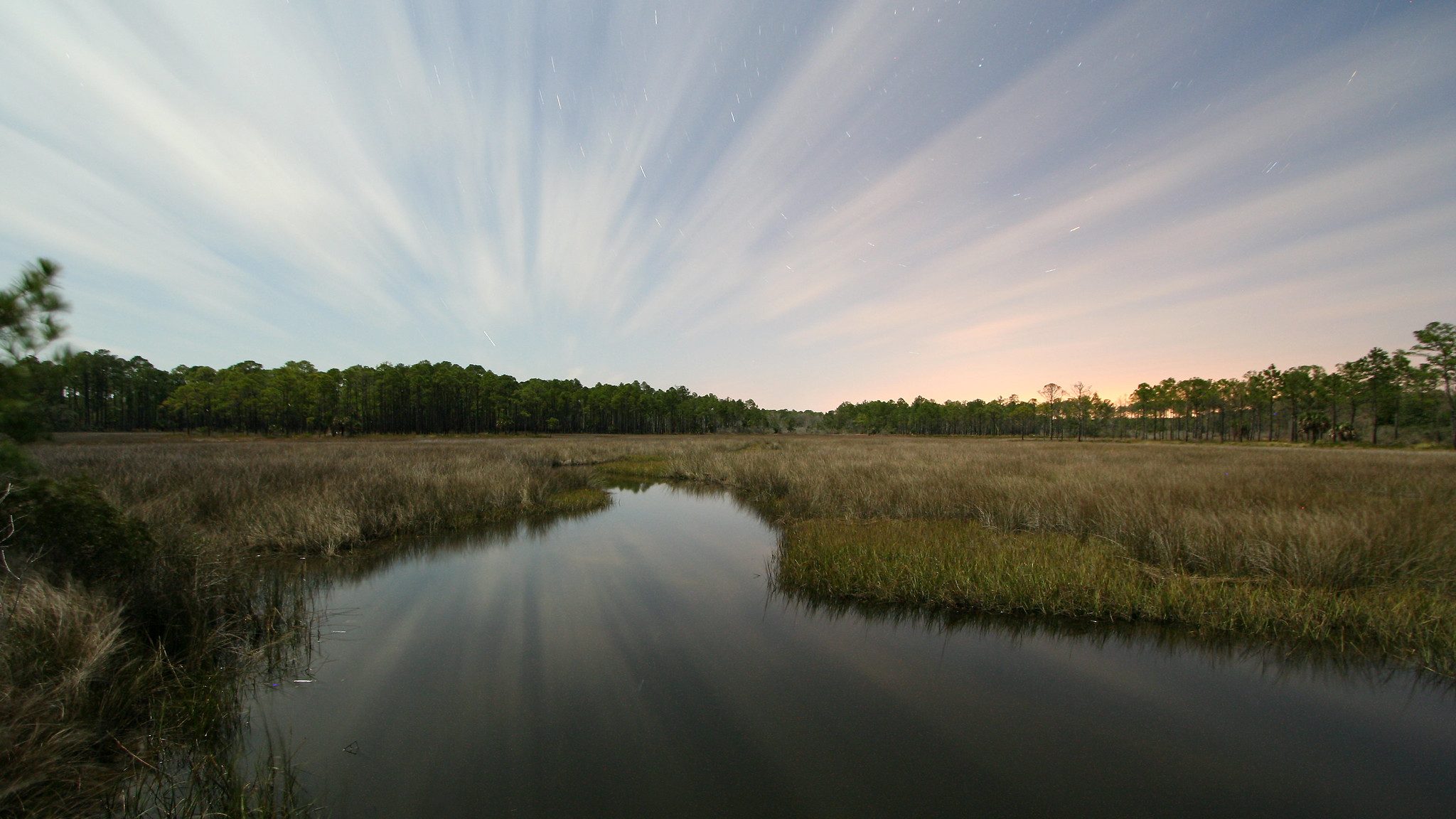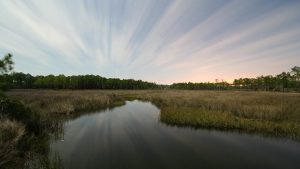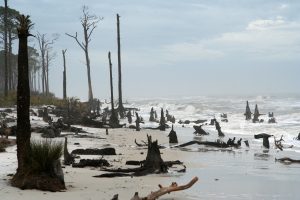May 2020 Newsletter

May 2020 Newsletter
Welcome to the Southeast Climate Adaptation Science Center’s May 2020 Newsletter.
For news and upcoming events related to the Southeast Climate Adaptation Science Center,
subscribe to our monthly newsletter.
SE CASC News | Resources | Publications | Tribal News | Partner News | Webinars | Events | Opportunities

Southeast Climate Adaptation Science Center News

The second webinar in the SE CASC & South Atlantic Spring/Summer Science Series features SE CASC Research Ecologist, Mitch Eaton discussing Building Adaptive Capacity in a Coastal Region Experiencing Global Change, May 21 at 10 am ET. Learn more and register.
SE CASC Researcher, Katie Warnell, will present on Piloting Ecosystem Accounts for the Southeastern U.S. webinar on May 21 at 2pm ET, describing work from SE CASC project, Ecosystem Services Mapping Datasets. Register here to learn about opportunities to extend their work.
Next up in the S6 series will be a presentation by SE CASC Researcher, Dwayne Estes (Southeastern Grasslands Initiative) and Rua Mordecai (South Atlantic Conservation Blueprint), Clarifying Science Needs for Southeastern Grasslands: The Piedmont, Coastal Plain, and Beyond on June 18 at 10am ET. Please register here to join us.
2016-2017 Global Change Fellow, Larry Long and SE CASC PI, Steve Frank recently published, “Risk of bird predation and defoliating insect abundance are greater in urban forest fragments than street trees,” supported by the SE CASC project Consequences of Urbanization and Climate Change on Human and Ecosystem Health. Learn more.
SE CASC Assistant University Director, Aranzazu Lascurain provides an overview of the Fourth National Climate Assessment and describes the key messages contained in the Southeast chapter in this video. To learn more about the NCA4, view our NCA4 webinar series.
The 2020 Atlantic Hurricane season is predicted to be more active than average. SE CASC Faculty Affiliate, Gary Lackmann provides some expert insight on the relationship between climate change and the frequency and intensity of these extreme storms. Learn more.
2018-2019 Global Change Fellow, Bonnie Myers and SE CASC Faculty Affiliate, Thomas Kwak, and other partners, published the Fish and Climate Change Database of peer-reviewed literature about inland fish and climate change. Learn more.
The final Global Change Seminar of the semester, Adaptation to Global Change in Urban Environments, held virtually on April 9, featured a presentation by Faculty Affiliate, Gavin Smith. View a summary and recording of the presentation here.
2015-16 Global Change Fellow, Georgina Sanchez, SE CASC Research Ecologist, Adam Terando, and SE CASC Researcher, Ross Meentemeyer, published “Forecasting Water Demand Across a Rapidly Urbanizing Region,” which evaluates how future scenarios of urban growth and climate warming will jointly affect water demand across the Carolinas. The accompanying data release provides public access to land change and water demand projections. Learn more.
Researcher Spotlight – Global Change Fellow, Emily Reed.
2016-17 Global Change Fellow, Paul Taillie is first author on Widespread mangrove damage resulting from the 2017 Atlantic Mega Hurricane Season.
2014-15 Global Change Fellow, Marketa Zimova, is first author on Using remote cameras to measure seasonal molts.
SE CASC Research Ecologist, Mitch Eaton, helped to develop the story map, Francis Marion National Forest: Adapting to Climate Change.
SE CASC Researcher, James Cronin, is co-author on A graphical causal model for resolving species identity effects and biodiversity–ecosystem function correlations.
SE CASC Researcher, Michael Runge, is co-author on Using value of information to prioritize research needs for migratory bird management under climate change: a case study using federal land acquisition in the United States.
Latest from Conservation Corridor: Comparing strategies and costs of expanding protected area networks.
Resources
FEATURED RESOURCE

Image Credit: Alan Cressler
The Florida Fish and Wildlife Conservation Commission, the Gulf of Mexico Alliance, and the American Society of Adaptation Professionals have partnered to offer an online climate adaptation course for natural resource managers working in the U.S. Gulf Coast region. The free of charge, interactive course which contains nine sessions aims to equip conservation professionals with the necessary knowledge to carry out critical conservation work in a time of uncertainty and change. Learn more.
Last Call for the Bayou. This five-episode mini-series by The Smithsonian channel highlights the risks of climate change on the Mississippi River Delta through the lens of residents who are experiencing the effects firsthand. More information.
Climate Futures Toolbox. This R package, developed and released by the North Central Climate Adaptation Science Center, enables easy access and analysis of downscaled climate data and can help in facilitating climate change analysis and scenario planning. Learn more.
Climate Change and Displacement in U.S. Communities. EcoAdapt’s State of Adaptation Program and the Strong, Prosperous, and Resilient Communities Challenge conducted a survey to better understand if and how people working to address displacement pressures in the U.S. are considering the effects of climate change. Learn more.
Florida Climate Outlook. This report presents and discusses the implications of climate change that will affect Floridians under a mild and moderate emissions scenario. Read the report.
PNAS Archaeology, Climate, and Global Change Special Feature. This special feature by the Proceedings of the National Academy of Sciences of the United States of America (PNAS) contains a series of journal articles that provide an archeological perspective to current social and environmental challenges and potential solutions. Learn more.
Cyanobacteria Assessment Network Mobile Application (CyAN app). This app, released by the EPA, scans water bodies for changes in cyanobacteria occurrence to provide water quality managers with a user-friendly app that informs decisions regarding recreational and drinking water safety. Learn more.
In the Media
What the Coronavirus Curve Teaches Us About Climate Change. Politico
US to have major floods on daily basis unless sea-level rise is curbed – study. The Guardian
Mapping key areas for conservation could help plants and animals survive climate change. Phys.org
Indigenous solutions to climate crisis could lie in archaeology, experts say. Mongabay
Notable Publications
Sea-level rise exponentially increases coastal flood frequency. Sea-level rise is accelerating and puts many coastal regions at risk. The extreme-but-rare weather events seen today are expected to become commonplace, threatening the safety and sustainability of coastal communities. This study examined the continuous shift in coastal flooding regimes by quantifying the continuous rates of increase in the occurrence of extreme water-level events due to sea-level rise. The odds of extreme coastal flooding are expected to double every 5 years into the future at most locations in the U.S., emphasizing the need for immediate planning of adaptation measures to mitigate the impacts of future extreme flooding events. Link to article.
Planning for climate change through additions to a national protected area network: implications for cost and configuration. Many species have already begun to shift their distributions in response to climate change and these range shifts are projected to increase. As distribution ranges shift, the protected areas that provide a habitat for these species may no longer provide suitable climatic conditions. In this study, researchers analyzed the network of protected sites that were climatically suitable for 1460 species today and into the future, climatic refugia, and areas likely to facilitate climate-driven species movements. While some similarities in the location of protected areas did emerge, incorporating climate change into the conservation-planning process will shift the location of protected areas, alter conservation priorities, and increase costs. Researchers argue, however, that the additional cost is relatively modest in comparison to the cost of expanding reserve networks without taking climate change projections into consideration. Link to article.
Harnessing marine microclimates for climate change adaptation and marine conservation. Researchers analyzed spatial variability at marine sites at small scales – several kilometers – to evaluate areas where microclimates can provide refuge for marine fishes, in the face of large-scale climate changes. They correlated multi-year data of temperature, salinity, and dissolved oxygen from monitoring sites to annual abundance surveys of kelp forest species in nearshore ecosystems in Baja California, Mexico to evaluate areas that could serve as climate refugia. Considerable variation in microclimates was found at these scales and authors recommend taking advantage of this variability to conserve and manage important marine fish species. Link to article.
How well do the spring indices predict phenological activity across plant species? Spring indices are models that represent the onset of biological activity for the spring season. These models, developed from a long-term observational dataset of lilacs and honeysuckles, have been used widely to understand the impact of climate change on seasonal patterns in the United States. In this study, researchers investigate how well the spring indices predict leaf and bloom activity in 19 species of deciduous trees and shrubs, as well as the lilac and honeysuckle species that were used to construct the models. Overall, the extent to which the models accurately represented biological activity varied by species with latitude, noting reduced concordance between the indices at higher latitudes. Additionally, a stronger relationship was revealed among shrubs than trees and for the Bloom Index compared to the Leaf Index. The findings from this study can be used to communicate with managers about when to expect activity across a broad range of species throughout the USA. Link to article.
Climate change increases the risk of fisheries conflict. Journal Abstract: The effects of climate change on the ocean environment – especially ocean warming, acidification, and sea level rise – will impact fish stocks and fishers in important ways. Likely impacts include changes in fish stocks’ productivity and distribution, human migration to and away from coastal areas, stresses on coastal fisheries infrastructure, and challenges to prevailing maritime boundaries. In this paper, we explore these and other related phenomena, in order to assess whether and how the impacts of climate change on fisheries will contribute to the risk of fisheries conflict. We argue that climate change will entail an increase in the conditions that may precipitate fisheries conflict, and thereby create new challenges for existing fisheries management institutions. Several potential changes in fisheries management policy are recommended to avert the growing risk of fisheries-related conflicts. Link to article.

Tribal News
Visit USET Climate Change Headlines for updates on information regarding climate science events, funding opportunities, best practices, and highlights from across the USET region here.
As Sea Level Rise Threatens Their Ancestral Village, a Louisiana Tribe Fights to Stay Put. This article by the Natural Resources Defense Council features examples of the resilience of the Atakapa-Ishak/Chawasha Tribe who live in the Grand Bayou of Louisiana, a region heavily affected by Hurricane Katrina, the BP Oil spill, and other environmental stressors. Learn more.
Registration is now open for ITEP’s inaugural National Tribal & Indigenous Climate Conference (NTICC) in St. Paul, Minnesota from Aug. 31 to Sept. 3, 2020. Register here by July 1.
The DOI Fish and Wildlife Service is accepting applications for the Tribal Wildlife Grants Program. Apply here by July 6.

Regional Partner News
USDA Forest Service: Future Scenarios
FL Fish and Wildlife Commission: Florida Keys Case Study on Incorporating Climate Change Considerations into Conservation Planning and Actions for Threatened and Endangered Species
NC Sea Grant: Capturing the Culprit
USDA: Our Planet Earth: Looking to the Future
Gulf Coast Ecosystem Restoration Council: RESTORE Council 10 Year Commemoration Report
National Park Service: Wildland Fire Strategic Plan

Webinars
May 20 | 12pm – 1pm | Secrets from a two-thousand year old marsh: blue carbon accumulation rates increase with sea level rise
May 20 | 3pm – 4pm | Wildland Fire Community Engagement and Data Visualization Tools
May 20 | 5pm – 6pm | Climate Adaptation Knowledge Exchange Event Options for adaptation, risk management, and resilience building in a changing climate: Q&A about the IPCC Special Report
May 21 | 10am – 11am | Building Adaptive Capacity in a Coastal Region Experiencing Global Change
May 21 | 12pm – 1pm | Forest Adaptation Webinar Series: Forest Birds
May 21 | 2pm – 3pm | Piloting Ecosystem Accounts for the Southeastern U.S.
May 22 | 11am – 12pm | CoastWatch Data Portal Demonstration
May 28 | 9:30am – 10:0am | NOAA Eastern Region Climate Services: Phenology/Status of Spring
May 28 | 11am – 12pm | Covid-19 and Its Impact on Global Carbon Emissions
May 28 | 1pm – 2pm | Case studies from TNC addressing conservation in times of crisis
May 28 | 2pm – 3pm | Meeting the Rural Resilience Imperative: Integrating Resilience into Rural Planning & Action
June 2 | 2pm – 3pm | Publishing Results of Co-produced Research
June 3 | 11am – 12pm | IN SPANISH: Las lecciones aprendidas de las temporadas de huracanes 2018-19 (Lessons learned from the 2018-19 Hurricane Seasons)
June 18 | 10am – 11am | Clarifying Science Needs for Southeastern Grasslands: The Piedmont, Coastal Plain, and Beyond

Upcoming Events
July 22-24, 2020 | Stay-In-stitute for Climate Change Education | Online
May 10-12, 2021 | Carolinas Climate Resilience Conference | Durham, NC

Opportunities
Student Announcements
University Corporation for Atmospheric Research is accepting applications for the Next Generation Fellowship program. Three positions are available in the fields of system science, diversity and inclusion, or public policy. Apply here by June 30.
Hiring Announcements
The USGS Western Ecological Research Center is hiring a Biologist. Apply here by May 22.
Arkansas Cooperative Fish & Wildlife Research Unit is accepting applications for a Research Ecologist/Wildlife Biologist. Apply here by June 4.
Iowa Cooperative Fish & Wildlife Research Unit is accepting applications for a Research Ecologist/Wildlife Biologist. Apply here by June 12.
National Wildlife Federation is hiring an Outreach Coordinator to begin on June 17. Apply here.
The USGS Northern Rocky Mountain Science Center is hiring a Biologist. Apply here. Applications will be accepted until 50 are received.
THE EPA is accepting applications for an EnviroAtlas Data Support position with the Office of Research and Development. Apply here.
Research Grants
North Carolina Water Resources Research Institute is requesting faculty pre-proposals and student full proposals for 2021-2022 water resources research and information-transfer projects. Faculty pre-proposals are due May 26. Student full proposals are due July 13. Apply here.
Bureau of Land Management is accepting applications for the National Threatened and Endangered Species grant. Apply here by June 1.
National Estuary Program has announced a call for proposals for the Coastal Watersheds Grant, a newly created program designed to support projects that address urgent and challenging issues threatening the well-being of coastal and estuarine areas within determined estuaries of national significance. Apply here by August 7.
National Geographic has announced a request for proposals for their Equity and the Natural World grant program. Apply here by October 21.
Miscellaneous
The deadline to submit a nomination for the AFWA Climate Adaptation Leadership Awards has been extended until May 22nd. View the nomination form here.
Southern Cultures, a peer-reviewed quarterly published for the Center for the Study of the American South, released a call for papers for a special issue, Human/Nature, to be published in Spring 2021. Apply here by June 15.
The 5th National Adaptation Forum has been postponed until May 11-13, 2022 in Atlanta, GA. NAF has released a survey to identify virtual conference options for 2021.
EcoAdapt has created a survey intended to assess marine and coastal professionals’ concerns about climate change impacts. Marine and coastal professionals can access the survey here.
A Community of Ecosystem Services 2020 conference, “Focusing on the Future of Ecosystem Services,” is accepting oral and poster presentations abstracts here until June 22.
The U.S. National Integrated Drought Information System has released a survey to gather input on how developing a regional scale Southeast Drought Early Warning System can support drought planning and preparedness at state and cross-state regional levels. More information.
- Categories:


